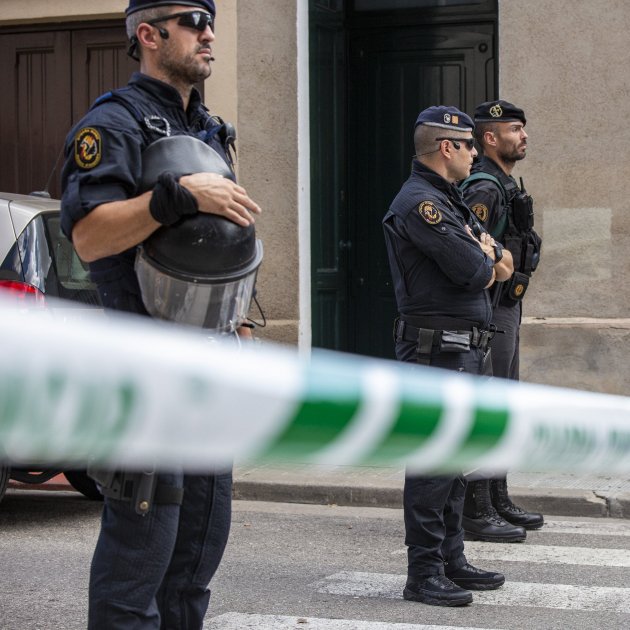Spanish criminal court the National Audience has prosecuted thirteen Catalan independence supporters, part of CDR (Committees for the Defence of the Republic) groups, who they accuse of belonging to a terrorist organization, in the so-called Operation Judas case. The public prosecutors requested this charge be put and the judge, Manuel García-Castellón, has agreed with their criteria. In addition, nine of them are charged with possession, deposit and manufacture of explosive and flammable substances or devices of a terrorist nature.
The investigating judge considers that, within the CDR activism groups, the accused formed a specialist unit called the Tactical Response Team (ERT), a cell composed of a radicalized nucleus composed of individuals from different CDRs.
The case made headlines in September 2019, just days before the verdicts in the Supreme Court trial of the Catalan independence leaders, when the Civil Guard staged a spectacular 500-officer operation to arrest nine alleged CDR members. Most of them were held in preventative jail for weeks, but leaked material from the case, under which they were accused of several terrorism offences, gradually became diluted in later court documents. Nevertheless, the investigation continued, and in mid 2020, four more people were accused in the case.
The creation of this cell was motivated, according to the judge, by the need to have, within the structure of the CDRs, a clandestine group of individuals of the highest confidence, who were totally dedicated to "the cause", who could be instructed to perform the most sensitive actions.
All those investigated, says the judge, share ideological principles in favour of independence and support radical activism to achieve it. The ultimate goal of the group was, he alleges, to achieve the independence of Catalonia, for which they would use violence in its fullest expression.
Judge supported the prosecutor's criteria
The prosecution considers that the nine defendants were planning attacks, sabotage and an assault on the Catalan Parliament as a planned response to the then-imminent 2019 Supreme Court verdicts on the pro-independence leaders. It is asserted that the evidence provided in the case shows that those involved had "already selected" targets that they wanted to attack.
The prosecutor also believes the defendants went beyond the activity of the CDRs to organize on their own and promote violent attacks. Specifically, the prosecution report asserts: "The subjects passed beyond the activity within their respective CDRs and formed a parallel terrorist organization, clandestine and stable, whose goal was to carry out violent actions or attacks on previously selected targets, using explosives and incendiary substances manufactured in the two clandestine laboratories that the organization had installed in two private homes."
According to the prosecutor, the evidence shows that the alleged parallel terrorist organization created by the accused sought to "achieve the independence of Catalonia, using violence in its fullest expression, using coercion to force the institutions to concede via direct action the separation of Catalonia from the rest of Spain".
While the prosecutors themselves point out that the alleged terrorist organization that the nine defendants made up was parallel to the CDRs, the prosecution case also takes the opportunity to assert that CDR organizations reject the use of paths legally established by the rule of law.
